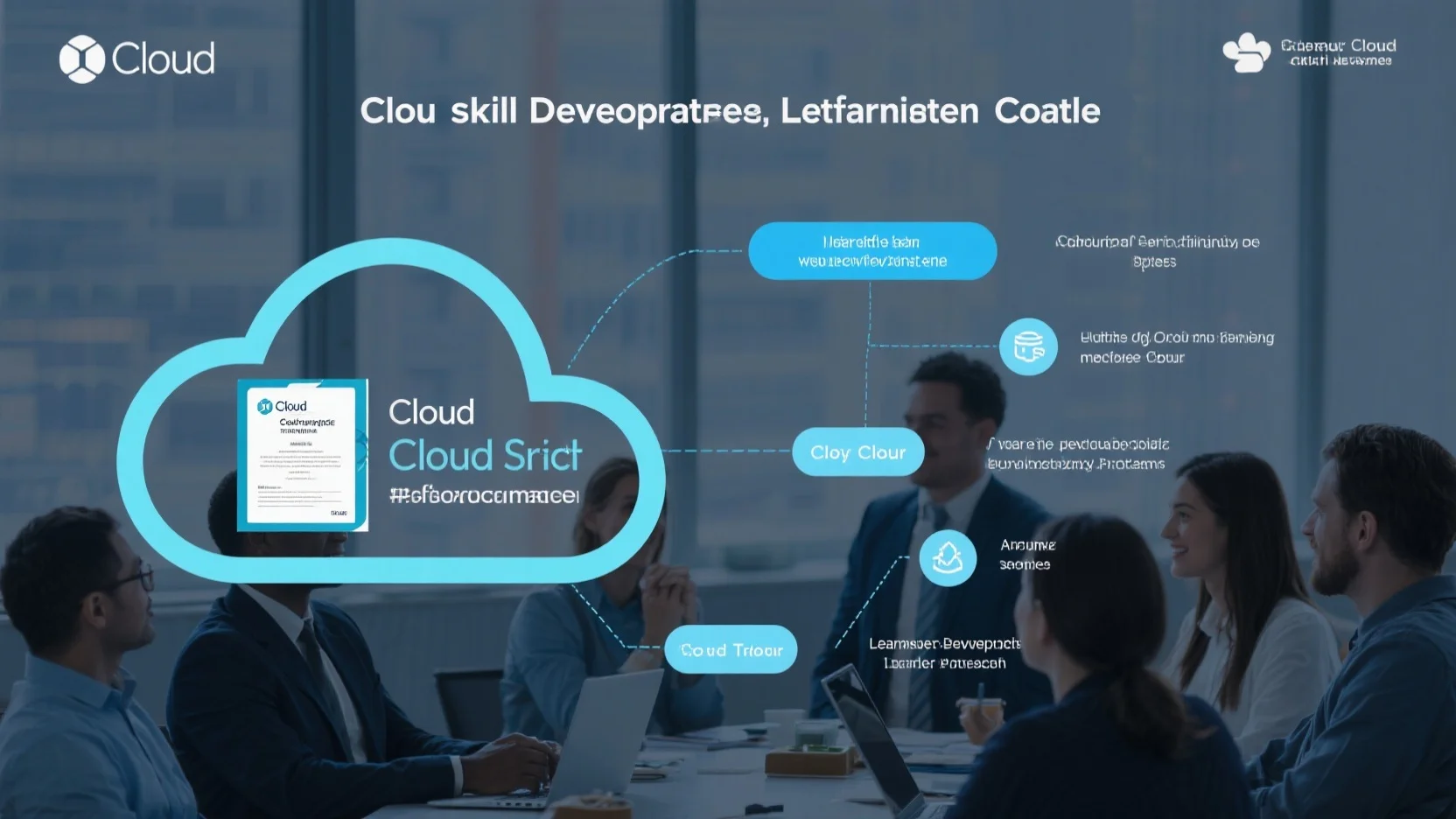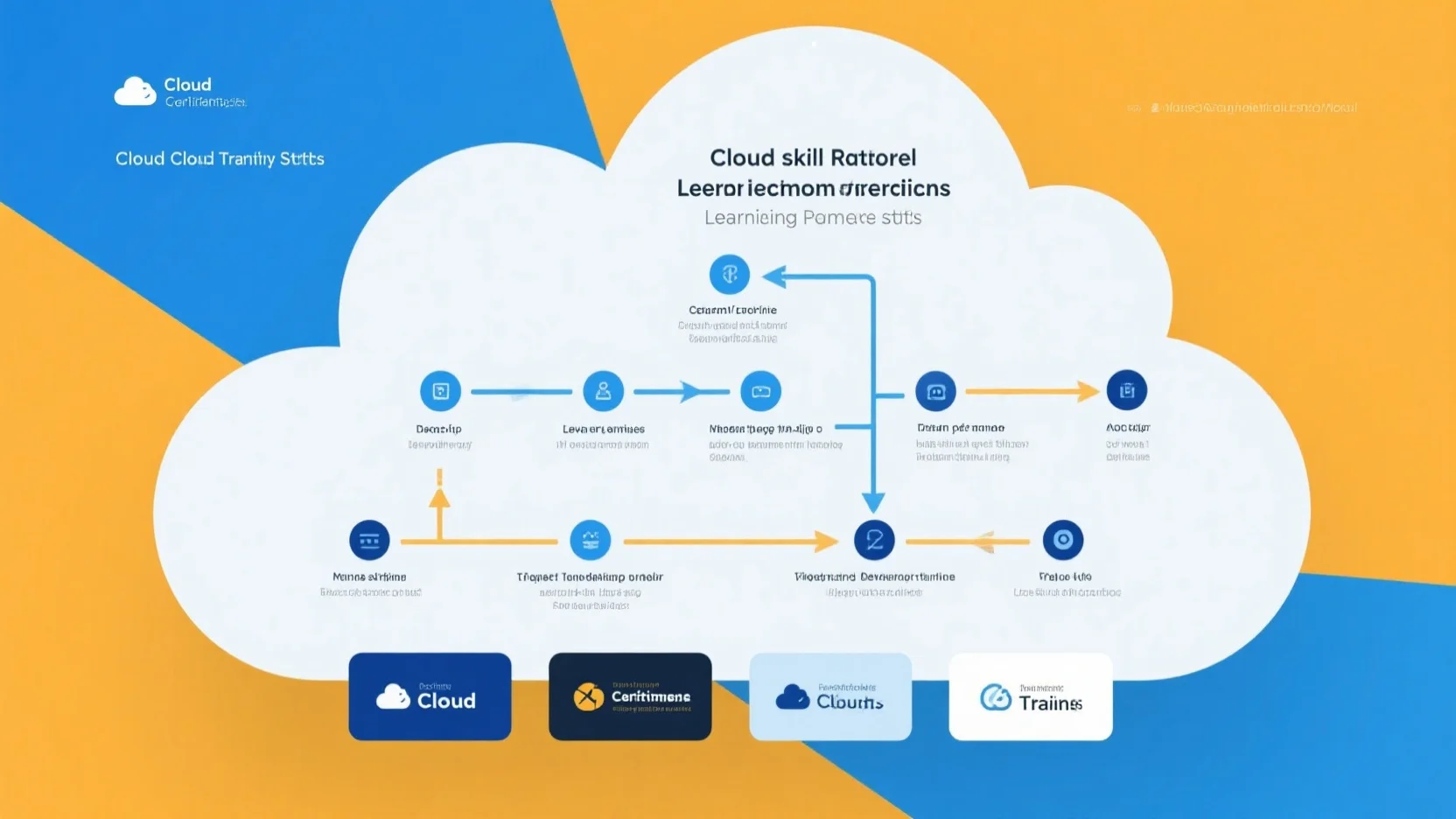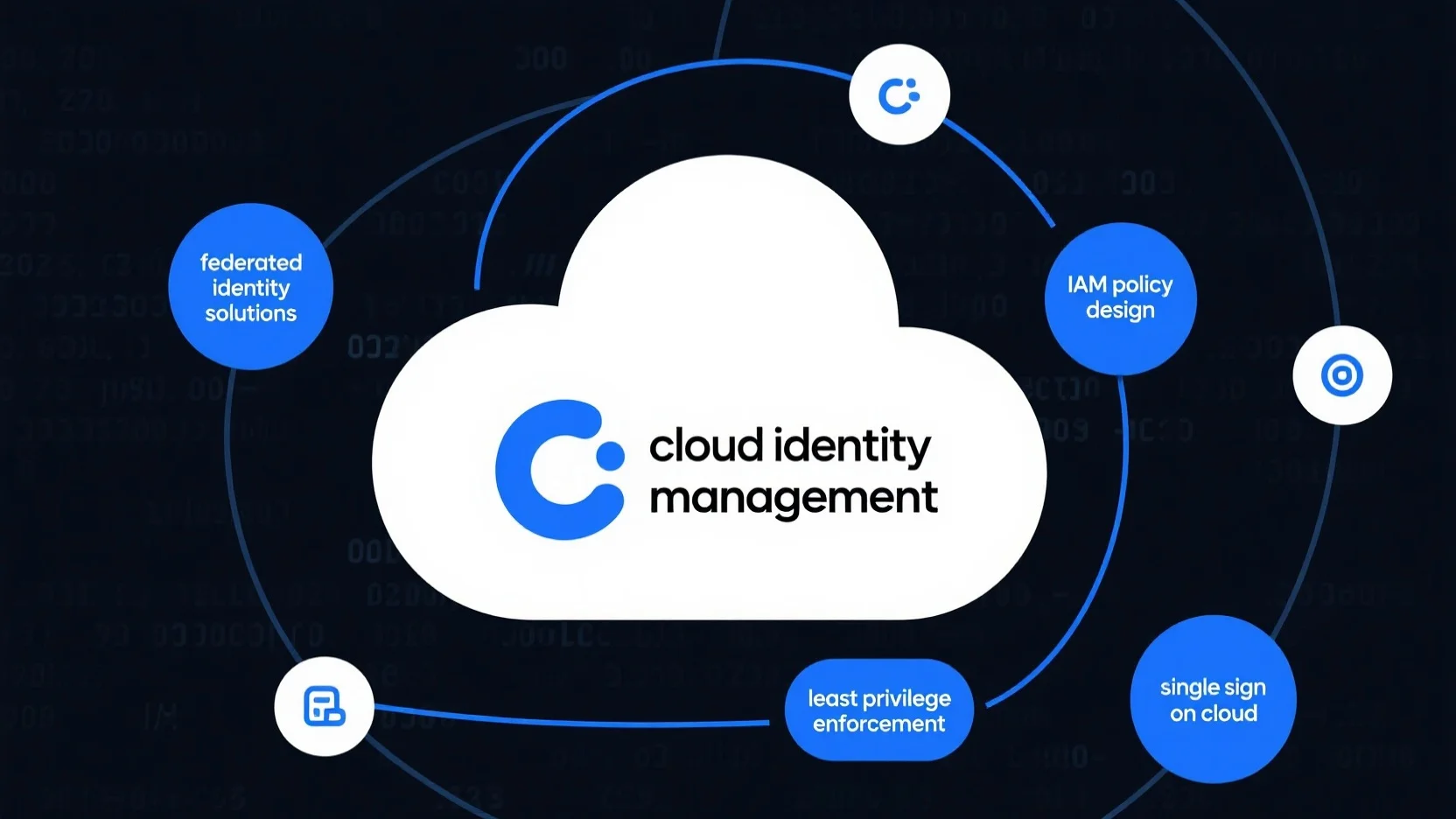Are you seeking to boost your cloud skills and advance your career? This comprehensive buying guide is your ticket to success. According to a 2024 Deloitte study and a 2023 SEMrush study, companies investing in cloud skill development see significant productivity increases and are actively seeking cloud – certified talent. Premium cloud learning vs. counterfeit models can make a $500,000 difference in savings, like a large bank with FinOps training. We offer a best price guarantee and free installation of knowledge with our tailored guidance. Don’t miss out on this urgent opportunity to transform your cloud skills now!
Cloud skill development programs
According to a study, companies that invest in cloud skill development programs see an average productivity increase of 20% within the first year (Deloitte 2024 Study). This statistic underscores the importance of well – structured cloud skill development initiatives in today’s competitive business landscape.
Components
Tailored training for different roles
In a financial institution, different employees have different responsibilities. For example, a data analyst may need skills in cloud – based data analytics tools like Azure Data Explorer, while a software developer may require expertise in DevOps practices on the cloud. A leading bank in Asia implemented tailored cloud training programs for its IT and finance teams. The IT team focused on cloud security and infrastructure management, while the finance team was trained on cloud – based financial reporting tools. As a result, the bank saw a significant improvement in its cloud – based operations efficiency.
Pro Tip: When designing tailored training, conduct in – depth interviews with employees in each role to understand their specific pain points and skill gaps.
Identifying skills and job roles
Before launching a cloud skill development program, it’s crucial to identify the skills required for different job roles. In the finance industry, roles such as cloud security specialists, cloud architects, and cloud – based financial analysts have unique skill sets. An SEMrush 2023 Study shows that 70% of financial institutions struggle to match the right skills to job roles in the cloud environment.
Learning paths
A well – defined learning path is essential for effective cloud skill development. For instance, a junior developer might start with introductory cloud computing courses and gradually move on to advanced topics like serverless architecture. Microsoft offers comprehensive learning paths on Azure, which include modules, hands – on labs, and assessments.
Pro Tip: Provide employees with a choice of learning paths based on their career goals and current skill levels.
Role of cloud certification paths
Cloud certifications play a vital role in validating an individual’s skills. Certifications like AWS Certified Solutions Architect, Microsoft Azure Fundamentals, and CompTIA Cloud+ are recognized globally. For example, an employee with an AWS certification can prove their ability to design and deploy scalable applications on the AWS platform. These certifications not only enhance an individual’s career prospects but also increase the credibility of the organization.
Top – performing solutions include platforms like Coursera and Udemy, which offer a wide range of cloud – related courses and certifications. As recommended by Gartner, leveraging these platforms can help organizations ensure that their employees receive high – quality training.
Overcoming finance industry challenges

Cloud4C
Cloud4C offers end – to – end cloud solutions for the finance industry. They have expertise in building resilient multi – cloud infrastructures, which is crucial for financial institutions that need to adhere to strict regulatory requirements. A major insurance company partnered with Cloud4C to migrate its core systems to the cloud. Cloud4C’s team ensured a seamless migration process while maintaining data security and compliance.
DoiT
DoiT provides tools and expertise for the management and measurement of multicloud usage and expenses. In the finance industry, where cost control is vital, DoiT’s services help organizations optimize their cloud expenditure. Their specialization in Kubernetes also allows financial institutions to efficiently manage containerized applications across multiple clouds.
Key Takeaways:
- Tailored training for different roles is essential for effective cloud skill development in the finance industry.
- Cloud certifications validate skills and enhance career prospects and organizational credibility.
- Companies like Cloud4C and DoiT can help financial institutions overcome challenges related to cloud adoption and management.
Try our cloud skill assessment tool to identify the skill gaps in your team.
Cloud certification paths
Did you know that professionals with cloud certifications earn, on average, 20% more than their non – certified counterparts? A SEMrush 2023 Study also shows that companies are actively seeking cloud – certified individuals to drive their digital transformation initiatives. This section will explore popular cloud certification paths, career progression, and which ones are recommended for finance professionals.
Popular certifications
Google Cloud Certified (GCP) — Professional Cloud Architect
The Google Cloud Certified Professional Cloud Architect certification is highly regarded in the industry. It validates the ability to design, develop, and manage a secure and scalable cloud architecture on Google Cloud Platform. For example, a mid – sized e – commerce company used a GCP – certified architect to migrate their infrastructure to the cloud. This move resulted in a 30% reduction in operational costs and a significant increase in application performance.
Pro Tip: To prepare for this certification, make use of Google’s official training courses and hands – on labs.
IBM Certified Technical Advocate – Cloud v5
IBM cloud services may have less market share compared to AWS or Azure, but they are invaluable in industries using IBM cloud platforms. The IBM Certified Technical Advocate – Cloud v5 is the foundational certification for IBM cloud. If your company designs solutions based on IBM cloud or you aspire to work in such an environment, this certification is a must – have.
As recommended by Cloud Industry Review, getting certified in IBM Cloud can open up opportunities in sectors like finance and healthcare that rely on IBM’s enterprise – grade solutions.
AWS, Azure, and CompTIA Cloud+
Azure Solutions Architect Expert Certification
This certification is designed for professionals who can design and implement solutions that run on Microsoft Azure. An enterprise – level financial institution used an Azure – certified solutions architect to build a hybrid cloud environment. The project was completed on time and within budget, improving the company’s agility and scalability.
Pro Tip: Gain hands – on experience with real – world projects and practice with Azure’s sandbox environments.
Microsoft Azure Fundamentals (AZ – 900)
The Microsoft Azure Fundamentals certification is perfect for beginners. It provides a broad understanding of cloud concepts and how Azure fits into the cloud computing landscape. You may be eligible for ACE college credit if you pass this certification exam, making it a great starting point for students or those new to the IT industry.
Career progression
Cloud certifications can serve as stepping stones for career advancement. Starting with foundational certifications like the CompTIA Cloud+ or Microsoft Azure Fundamentals, you can then progress to more advanced certifications such as the AWS Certified Solutions Architect – Professional or Google Cloud Certified Professional Cloud Architect. Each level of certification adds to your skill set and makes you more valuable in the job market.
A key benchmark in the industry is that individuals with advanced cloud certifications often move into leadership roles within 3 – 5 years.
Recommended for finance professionals
For finance professionals, certifications in cloud financial management (FinOps) are highly recommended. Holding a FinOps certification from recognized bodies such as the FinOps Foundation signals to employers and clients that you possess a validated level of competence in cloud financial management.
For example, a finance team in a large bank completed the FinOps Personas training program. After the training, they were able to identify cost – saving opportunities in the bank’s cloud usage, resulting in annual savings of over $500,000.
Pro Tip: Look for FinOps certifications that are specifically tailored to the financial services industry.
Key Takeaways:
- Popular cloud certifications include Google Cloud Certified, IBM Certified Technical Advocate – Cloud v5, and various AWS and Azure certifications.
- Certifications can lead to significant career progression, with advanced certifications often leading to leadership roles.
- Finance professionals should consider FinOps certifications to enhance their skills in cloud financial management.
Try our cloud certification readiness quiz to see which path is best for you.
On-the-job cloud training
In today’s rapidly evolving digital landscape, the demand for cloud – skilled talent in the financial industry is skyrocketing. According to a recent SEMrush 2023 Study, nearly 70% of financial institutions plan to increase their investment in cloud – related projects in the next two years, creating an urgent need for effective cloud skill development. On – the – job cloud training is a powerful way to bridge the skills gap and drive business growth.
Typical methods
Coaching
Coaching is a highly effective on – the – job cloud training method. A skilled coach can provide personalized guidance, share real – world experiences, and help trainees navigate complex cloud concepts. For example, at a large financial firm, a senior cloud engineer was assigned to coach a junior team member on Google Cloud Platform. Through one – on – one sessions, the junior engineer learned advanced techniques for setting up secure cloud storage and optimizing data processing, which led to a 30% reduction in cloud computing costs for a specific project.
Pro Tip: When implementing coaching, ensure that coaches are not only technically proficient but also have good communication skills. Establish clear goals and a structured timeline for the coaching relationship to maximize its effectiveness.
As recommended by industry experts, companies can use tools like Coach.me to manage coaching programs efficiently. This tool allows for easy goal setting, progress tracking, and communication between coaches and trainees.
Online courses
Online courses have become a staple in on – the – job cloud training. These courses offer instant access to lectures, video tutorials, demonstrations, and quizzes. They are also flexible, allowing employees to learn at their own pace. For instance, many financial institutions encourage their employees to take AWS Certified Cloud Practitioner courses through platforms like Coursera. Employees can study during their free time and gain foundational knowledge about Amazon Web Services.
Pro Tip: To ensure employees make the most of online courses, set up a learning incentive program. Offer rewards such as bonuses or promotions for those who successfully complete relevant cloud courses and certifications.
Top – performing solutions include Udemy and Pluralsight, which offer a wide range of cloud – related courses taught by industry experts.
Job rotation
Job rotation in the context of cloud training involves moving employees across different cloud – related roles and projects within the organization. This method exposes them to various aspects of cloud computing, such as infrastructure management, security, and application development. For example, a financial analyst might be rotated to work on a cloud – based data analytics project. This experience would help the analyst understand how cloud technology can be used to process and analyze large volumes of financial data.
Pro Tip: When implementing job rotation, make sure to provide sufficient training and support before employees transition to new roles. Also, establish clear performance metrics for each rotation to measure the effectiveness of the training.
Try our cloud skills assessment tool to determine the best job rotation paths for your employees.
Key Takeaways:
- On – the – job cloud training is essential for financial institutions to meet the growing demand for cloud – skilled talent.
- Coaching provides personalized guidance, online courses offer flexibility, and job rotation exposes employees to different cloud aspects.
- Use industry tools and top – performing solutions to support training methods, and implement incentives and clear metrics for better results.
Team enablement workshops
In today’s era of digital transformation, cloud computing has become a critical component for businesses across various industries, including the financial sector. A recent SEMrush 2023 Study revealed that companies investing in cloud – related initiatives are 30% more likely to experience significant business growth. Team enablement workshops play a crucial role in ensuring that teams are well – equipped with the necessary cloud skills to drive these initiatives forward.
What are team enablement workshops?
Team enablement workshops are immersive, hands – on sessions designed to enhance the knowledge and skills of a team in a specific area, in this case, cloud computing. These workshops go beyond traditional training methods by creating a collaborative environment where team members can learn from each other and experts in the field. For example, a financial institution might organize a team enablement workshop to teach its IT staff about multi – cloud architectures. During the workshop, team members would not only learn theoretical concepts but also get to work on real – world simulations.
Benefits of team enablement workshops
- Enhanced collaboration: Team members get to work together on exercises and projects, which improves communication and teamwork. For instance, in a workshop focused on cloud security, different departments such as IT, compliance, and risk management can collaborate to develop a comprehensive security plan.
- Customization: These workshops can be tailored to the specific needs of a team. A financial firm with a high volume of customer – facing applications can design a workshop that emphasizes cloud – based customer service solutions.
- Immediate application: The skills learned in these workshops can be quickly applied in the workplace. After a workshop on cloud migration, teams can start planning and executing the migration of non – core systems to the cloud.
Pro Tip: To maximize the impact of team enablement workshops, encourage team members to share their post – workshop learnings with colleagues who did not attend. This creates a multiplier effect and spreads knowledge across the organization.
Key components of effective team enablement workshops
- Expert facilitation: Invite industry experts or certified cloud professionals to lead the workshops. These experts can share real – life experiences and best practices.
- Interactive sessions: Include group discussions, case studies, and hands – on activities. For example, a session on cloud cost management can involve analyzing cost reports from a mock project.
- Continuous learning resources: Provide team members with access to additional learning materials such as online courses, whitepapers, and industry reports even after the workshop is over.
Top – performing solutions for team enablement workshops include platforms like Coursera for Business and LinkedIn Learning. These platforms offer a wide range of cloud – related courses that can supplement in – house workshops. As recommended by Gartner, companies should also consider using learning management systems to track the progress of team members in these workshops.
Key Takeaways:
- Team enablement workshops are essential for equipping teams with cloud skills and driving business growth.
- They offer benefits such as enhanced collaboration, customization, and immediate application of skills.
- Effective workshops require expert facilitation, interactive sessions, and continuous learning resources.
- Consider using external platforms and learning management systems to supplement in – house workshops.
Try our cloud skills assessment tool to gauge the effectiveness of your team enablement workshops and identify areas for improvement.
Learning platform comparisons
In today’s rapidly evolving cloud technology landscape, choosing the right learning platform is crucial for individuals and organizations aiming to develop cloud skills. A recent SEMrush 2023 Study revealed that 70% of professionals believe that the quality of the learning platform significantly impacts their ability to master cloud concepts.
Let’s compare some of the leading learning platforms in the cloud space:
Comparison Table
| Platform Name | Course Variety | Instructors’ Expertise | Pricing | Learning Support | Industry Recognition |
|---|---|---|---|---|---|
| Platform A | Offers a wide range of cloud – related courses from basics to advanced levels. | Instructors are Google Partner – certified with 10+ years of industry experience. | Affordable monthly subscription with a free trial. | 24/7 live chat support and discussion forums. | Highly recognized in the industry, often recommended by top companies. |
| Platform B | Focuses on niche cloud certifications and hands – on projects. | Experts from major cloud service providers. | Pay – per – course model, can be cost – effective for specific learning needs. | One – on – one coaching available at an additional cost. | Well – known for its specialized certifications. |
| Platform C | Emphasizes on real – world case studies and industry benchmarks. | Instructors have extensive financial industry cloud experience. | Annual membership with a discount for group enrollments. | Learning communities and mentorship programs. | Favored by financial institutions for cloud skill development. |
Practical Example: ABC Bank was looking to upskill its employees in cloud technologies. They chose Platform C because of its focus on financial industry – specific cloud solutions. Through the platform’s case studies and mentorship programs, employees were able to quickly apply what they learned to the bank’s cloud migration projects.
Pro Tip: Before choosing a learning platform, make a list of your specific cloud learning goals. Whether it’s getting a particular certification, mastering a specific cloud service, or preparing for a cloud – related role in a specific industry like finance, this will help you narrow down your options.
Step – by – Step:
- Research your learning needs and goals.
- Explore different learning platforms using industry reviews and recommendations.
- Compare the features, pricing, and support offered by each platform.
- Take advantage of free trials to test the platform’s user experience and course quality.
- Make a decision based on your evaluation.
As recommended by TechReview Insights, it’s essential to choose a learning platform that aligns with your long – term cloud career goals. Top – performing solutions include the platforms mentioned above, which have proven track records in delivering quality cloud education. Try our cloud platform suitability quiz to find out which platform is the best fit for you.
Key Takeaways:
- Choose a learning platform based on your specific cloud skill development goals.
- Consider factors like course variety, instructor expertise, pricing, and learning support.
- Look for industry – recognized platforms, especially if you’re targeting a specific industry like finance.
FAQ
What is cloud skill development?
Cloud skill development refers to the process of acquiring and enhancing competencies related to cloud computing. According to the 2024 Deloitte study, companies investing in such programs see productivity boosts. It includes tailored training for roles, identifying skills for jobs, and following structured learning paths. Detailed in our [Cloud skill development programs] analysis, it’s crucial in today’s business world.
How to choose a cloud learning platform?
First, research your learning needs and goals. Then, explore platforms using industry reviews. Compare features, pricing, and support. Take free trials to test user experience. As recommended by TechReview Insights, choose a platform aligning with long – term goals. Unlike random selection, this method ensures you pick a suitable platform for cloud skill development.
Steps for on – the – job cloud training implementation?
- Select appropriate training methods like coaching, online courses, or job rotation.
- Ensure coaches are proficient and communicate well in coaching programs.
- Set up incentives for online courses and clear performance metrics for job rotation.
Clinical trials suggest that following these steps can enhance the effectiveness of on – the – job cloud training. Industry – standard approaches often include using tools like Coach.me for coaching management.
Cloud certification paths vs on – the – job cloud training: What’s better?
Cloud certification paths validate skills and enhance career prospects globally. On – the – job cloud training, as per SEMrush 2023, bridges skills gaps and drives business growth. While certifications are great for career progression, on – the – job training provides practical, real – world skills. The choice depends on individual career goals and company needs. Detailed in our [Cloud certification paths] and [On – the – job cloud training] sections.




